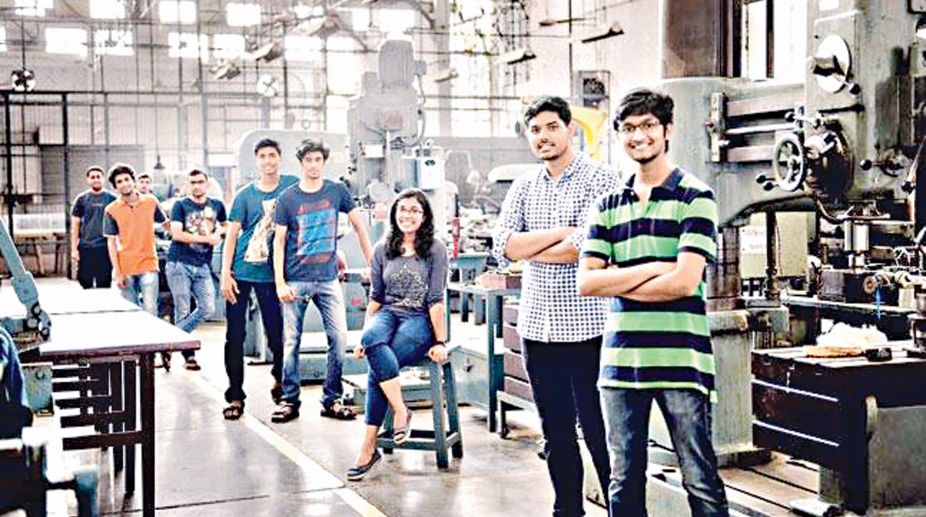City students excel at school meet on history & monuments in Delhi
Mahadevi Birla Shishu Vihar was the only ICSE school to take part in the festival from West Bengal, along with schools from other states.

Students
When you first think of applying to IIT, presumably your interests or your career goals revolve around engineering and the sciences. Once you take up the core modules, you have plenty of opportunities to pick from. Yes, it may be true that engineers resort to other fields that don’t necessarily require this background, but this isn’t the case for everyone.
Each year over 9,000 candidates qualify one of the toughest entrance examinations to gain a seat at the prestigious Indian Institutes of Technology but most have little knowledge of what exactly it holds for them. For almost all of them, a seat in the IITs is a passport to success.
Candidates who have cleared this exam are faced with numerous questions. These range from the selection of specific departments and what it holds for them in the next four years.
Advertisement
Lower ranked students are faced with even more confusing situations such as going to a popular branch at the NITs or BITS, skipping the IITs, and exercising the option of dropping a year. And parents are concerned about ragging and the various stress levels involved.
In all this, the primary reason for getting into the IITs –— an engineering degree from the world’s best undergraduate institution is lost. What compounds this issue is the lack of clarity among the candidates as to what next after clearing this exam.
Most end up taking up courses at the IITs without a regard for their interests, without the slightest knowledge of what they are going to study for the next four years.
In essence, most candidates end up selecting their undergraduate majors based on what the previous year rank holder did or which institute is closer to their hometown. Here are the various fields that could suit you:
Automotive industry: Perfect for mechanical engineering graduates, as you would have to design tools, car parts, and vehicles, and you would have to improve on already existing designs.
Chemical industry: Chemical engineers could look at manufacturing plants or chemical and pharmaceutical companies, which are extremely popular in India.
Aerospace industry: Engineers with a background in aerospace, automobile, and even mechanical engineering could be hired either for designing aircrafts, or even their operations.
Engineering physics: Graduates in this field have a wide set of skills when it comes to mathematics, computer systems, electronics, and obviously, physics. This means that careers in either telecommunications or nuclear engineering could be an option.
Electrical industry: Electric engineers can design and develop electrical control systems. You could look at jobs in plenty of fields such as, power production, manufacturing, transportation,networking, and even with builders for their lighting and heating needs.
Civil engineering: If you have a civil engineering background, then once again, you will have various career paths ahead of you. You could get into environmental engineering, structural engineering, transportation engineering, and even geo technical engineering.
Mechanical industry: A very popular career path, mechanical engineers, get to develop and design products and even processes that can be either small components or machinery, or even vehicles. After all, most fields need mechanical systems. For example, you could take a look at automotive industries, defence engineering, transport, and even research sectors.
Computer science industry: Jobs in technology and software pay extremely well right from starting salaries. Added to that, the demand for computer and software engineers are always high, which already opens wide doors for you. With an engineering background from IIT, you have more than enough career paths to pick from that are directly related to your skill set. Rest assured you will fit right in.
What does it take to change your department at IIT? Here department change is totally based on merit, however there is a certain amount of relaxation for reserved categories. The cutoffs are not fixed and vary every year. As far as preparation is considered, it’s more about being consistent and up to date with what is being taught in class.
In the first year, students have an ugly habit of missing classes. They tend to believe that relying on other students’ notes or lecture slides is sufficient. If you can stay away from such a habit and regularly attend classes following up with what is being taught, and it’s a difficult task. Another factor to consider is to give equal importance to each course, lecture or practical. IT’s seen students miss out on dep-c because of a bad grade in just one or two courses they didn’t pay much attention to.
From a philosophical point of view, one needs to be mentally strong and focused. However, the extra hours you put in are all compensated the day you get your grades. A dep-c doesn’t require you to spend long nights like you perhaps did during your JEE days, just a lit amount of sincerity and hard work.
The writer is director, EnerJEE, Eduventures India Pvt Ltd.
Advertisement